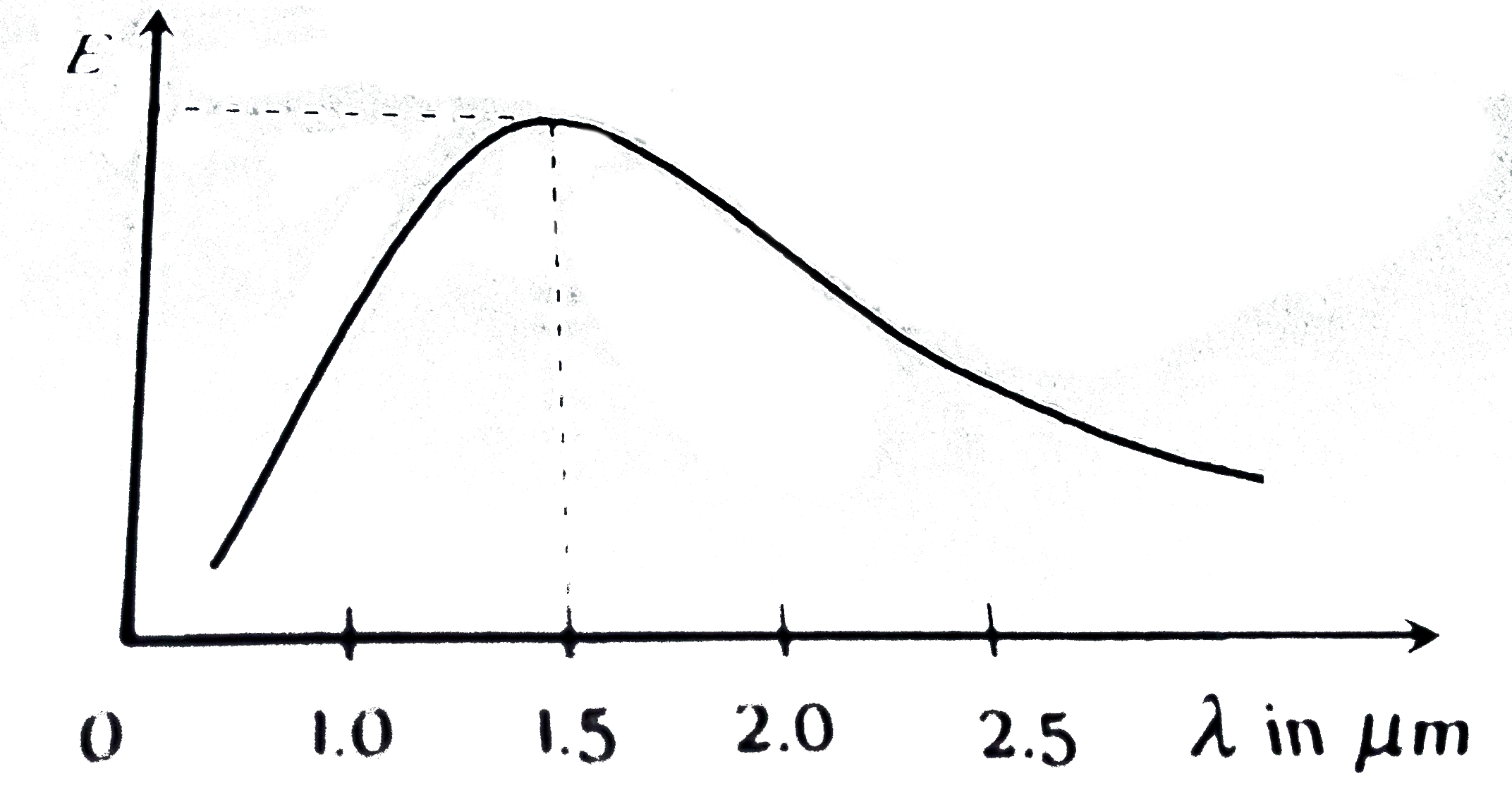Mark out the correct statement with respect to thermal radiations emitted by a black body
At a given temperature, , energy is distributed non - uniformly among different wavelengths
As temperature of body is increased , energy content of all wavelengths decreases
The product of (spectral energy) with (spectral width) , for all equal is the same
The thermal radiation emitted by a hot body is a discrete spectra
The correct Answer is:A
To solve the question regarding the correct statement with respect to thermal radiations emitted by a black body, we will analyze the properties of black body radiation and the statements provided.
1. Understanding Black Body Radiation:
- A black body is an idealized physical object that absorbs all incident electromagnetic radiation, regardless of frequency or angle of incidence. It also emits radiation in a characteristic spectrum that depends solely on its temperature.
2. Graph of Black Body Radiation:
- The intensity of radiation emitted by a black body as a function of wavelength is represented by a continuous spectrum. The graph is typically plotted with intensity (or emissive power) on the y-axis and wavelength on the x-axis. This graph is not symmetrical and shows that energy distribution among different wavelengths is non-uniform.
3. Analyzing the Statements:
- Statement A: "At a given temperature, energy is distributed non-uniformly among the different wavelengths."
- This statement is correct because the graph of black body radiation shows that the intensity varies with wavelength, indicating a non-uniform distribution.
- Statement B: "The temperature of the body increases, the energy content of all wavelengths increases."
- This statement is misleading. While the total energy emitted increases with temperature (according to Stefan-Boltzmann Law), the distribution of energy among wavelengths changes as well. Therefore, this statement is not entirely correct.
- Statement C: "The product of Eλ with dλ for r=η′Eλ will not be the same."
- This statement is incorrect because the emissive power Eλ multiplied by dλ gives the intensity of radiation at that wavelength, which is a valid expression in the context of black body radiation.
- Statement D: "Thermal radiation emitted by a hot body is a discrete spectrum."
- This statement is incorrect. The thermal radiation emitted by a black body is continuous, not discrete.
4. Conclusion:
- The only correct statement is Statement A.
Final Answer:
The correct statement with respect to thermal radiations emitted by a black body is: At a given temperature, energy is distributed non-uniformly among the different wavelengths.
- A black body is an idealized physical object that absorbs all incident electromagnetic radiation, regardless of frequency or angle of incidence. It also emits radiation in a characteristic spectrum that depends solely on its temperature.
- The intensity of radiation emitted by a black body as a function of wavelength is represented by a continuous spectrum. The graph is typically plotted with intensity (or emissive power) on the y-axis and wavelength on the x-axis. This graph is not symmetrical and shows that energy distribution among different wavelengths is non-uniform.
- Statement A: "At a given temperature, energy is distributed non-uniformly among the different wavelengths."
- This statement is correct because the graph of black body radiation shows that the intensity varies with wavelength, indicating a non-uniform distribution.
- Statement B: "The temperature of the body increases, the energy content of all wavelengths increases."
- This statement is misleading. While the total energy emitted increases with temperature (according to Stefan-Boltzmann Law), the distribution of energy among wavelengths changes as well. Therefore, this statement is not entirely correct.
- Statement C: "The product of Eλ with dλ for r=η′Eλ will not be the same."
- This statement is incorrect because the emissive power Eλ multiplied by dλ gives the intensity of radiation at that wavelength, which is a valid expression in the context of black body radiation.
- Statement D: "Thermal radiation emitted by a hot body is a discrete spectrum."
- This statement is incorrect. The thermal radiation emitted by a black body is continuous, not discrete.
- The only correct statement is Statement A.
The correct statement with respect to thermal radiations emitted by a black body is: At a given temperature, energy is distributed non-uniformly among the different wavelengths.
Topper's Solved these Questions
Similar Questions
Knowledge Check
Mark out the correct statement(s) :
AAtomic radii is a periodic propertyBOn moving down the group, metallic character decreases and thus ionisation energy increases.COn moving across the period, effective nuclear charge increases and thus ionisation energy increases.DAtomic volume of alkali metals are highest in the respective periods.Mark out the correct statement(s).
ACopper metal cannot reduce iron (II) ions in acidic solutions.BSodium can be obtained by the electrolysis of aqueous solution of NaCl using Pt electrodes.CThe current carrying ions in an electrolytic cell are not necessarily discharged at the electrodes.DCations having more negative oxidation potential than -0.828 V are reduced in preference to water.Mark out the correct statement(s).
ATotal work done by internal forces on a system is always zeroBTotal work done by internal forces on a system may sometimes be zeroCTotal work done by friction can never be zeroDTotal work done by friction is always zero
Mark out the correct statements(s).
View SolutionThe gross radiation emitted by a perfectly black body is:
View SolutionMark the correct statement out of the following
View SolutionThe wavelength of the radiation emitted by a body depends upon
View SolutionIn the figure, the distribution of energy density of the radiation emitted by a black body at a given temperature is shown. The possible temperature of the black body is

View Solution
